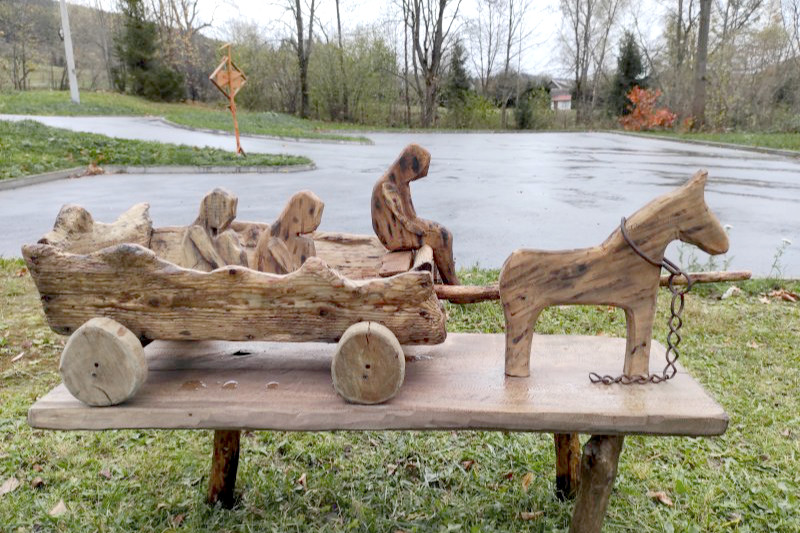OBJECTIVE
Commemoration of a historical event of importance for the local community.
ACTIONS:
- purchase of materials;
- meeting with a historian, who talked about the history of the site and the events of 1951;
- design works for the sculptural installation;
- sculptural plein-air – 2 weeks;
- making the installation: sculpting, polychroming, impregnation;
- installation of the installation;
- preparation and placement of information boards;
- public presentation of the installation.
DESCRIPTION
The students, working in teams, with the benefit of historical knowledge and practice, will create the “Exodus” project and installation during a 2-week sculptural plein-air. Sculptural and spatial forms made of wood, metal, and stone will be created and installed in the village of Rabe, to commemorate the forced displacement of residents of Hrubieszów and Tomaszów in 1951 as part of Operation H-T, during the so-called land swap between Poland and the USSR. Everyone will be welcome at the permanent exhibition – residents, tourists, historians and artists.
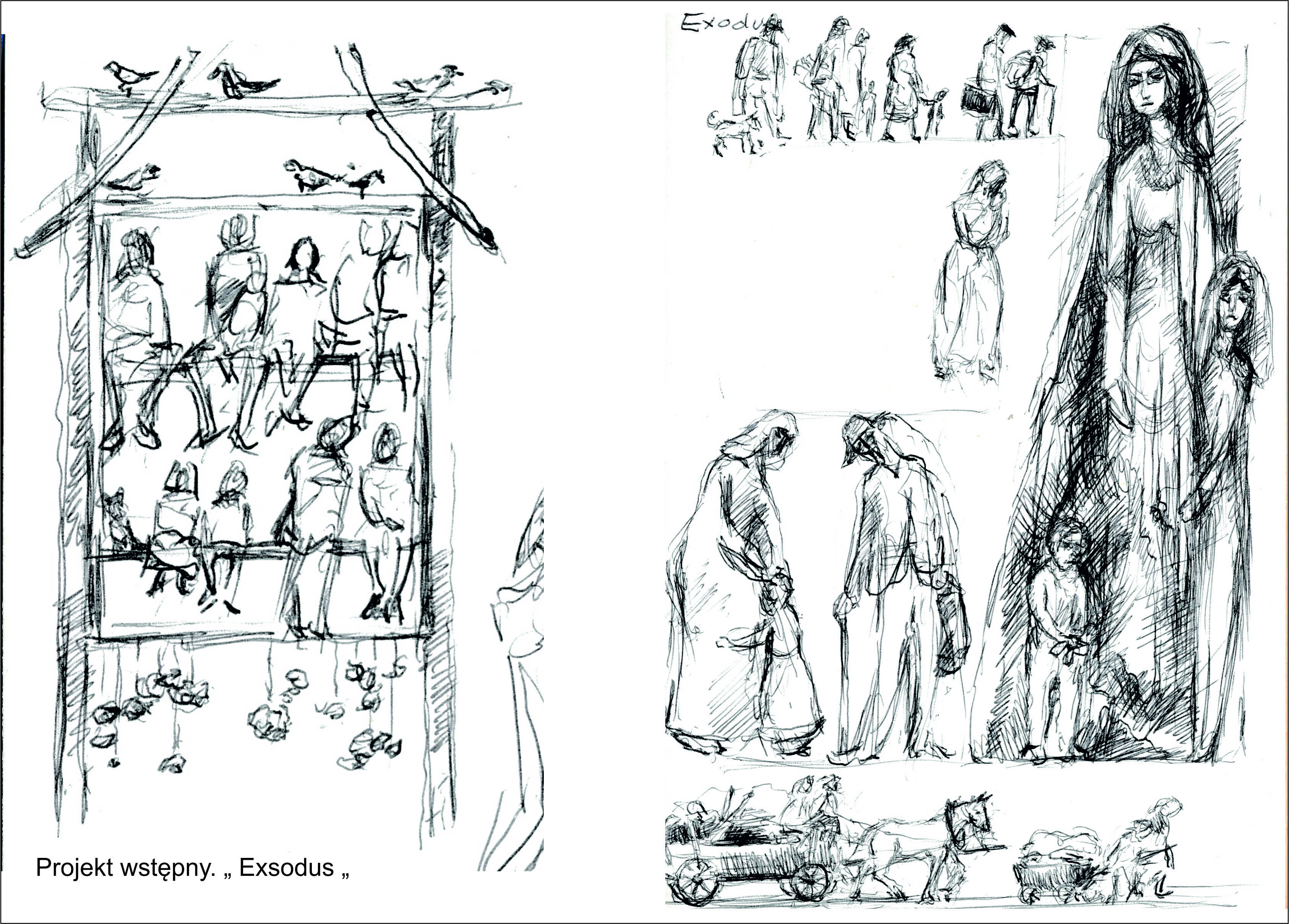
Project sketches
OBSERVING THE COMPETITION THEME: “What’s new in art?”
Answer to the question posed by the competition – an example of socially conscious art. In the 21st century Poland, when the perception of historical memory and patriotism grows increasingly one-sided and takes on a nationalistic fervour, we see an example of students’ commitment to handling difficult, yet all-important local history through creative action and their own sensitivity, dealing with the past and creating values for future generations.
FINAL EFFECT
Exodus – a permanent outdoor sculptural and spatial installation commemorating a historical event from the village of Rabe (Bieszczady district), which occurred in 1951.
IMPLEMENTATION
The project aimed to shape the student’s creative and artistic attitude, light the artistic spark, cognitive curiosity, personal creative potential, and the ability to work in a group. As Waldemar Kordyaczny, attending teacher and artist, recalls, “Our project started much earlier than the implementation itself. When we were writing the project, we contacted the Mayor of the Commune, the Voluntary Fire Brigade, the Village Administration, and the community of Rabe (Bieszczady district), where the sculptural installation was envisioned. We received full acceptance and support from all sides. This response pushed us in this direction. From that moment on, we began collecting the materials needed to make it come to fruition”.
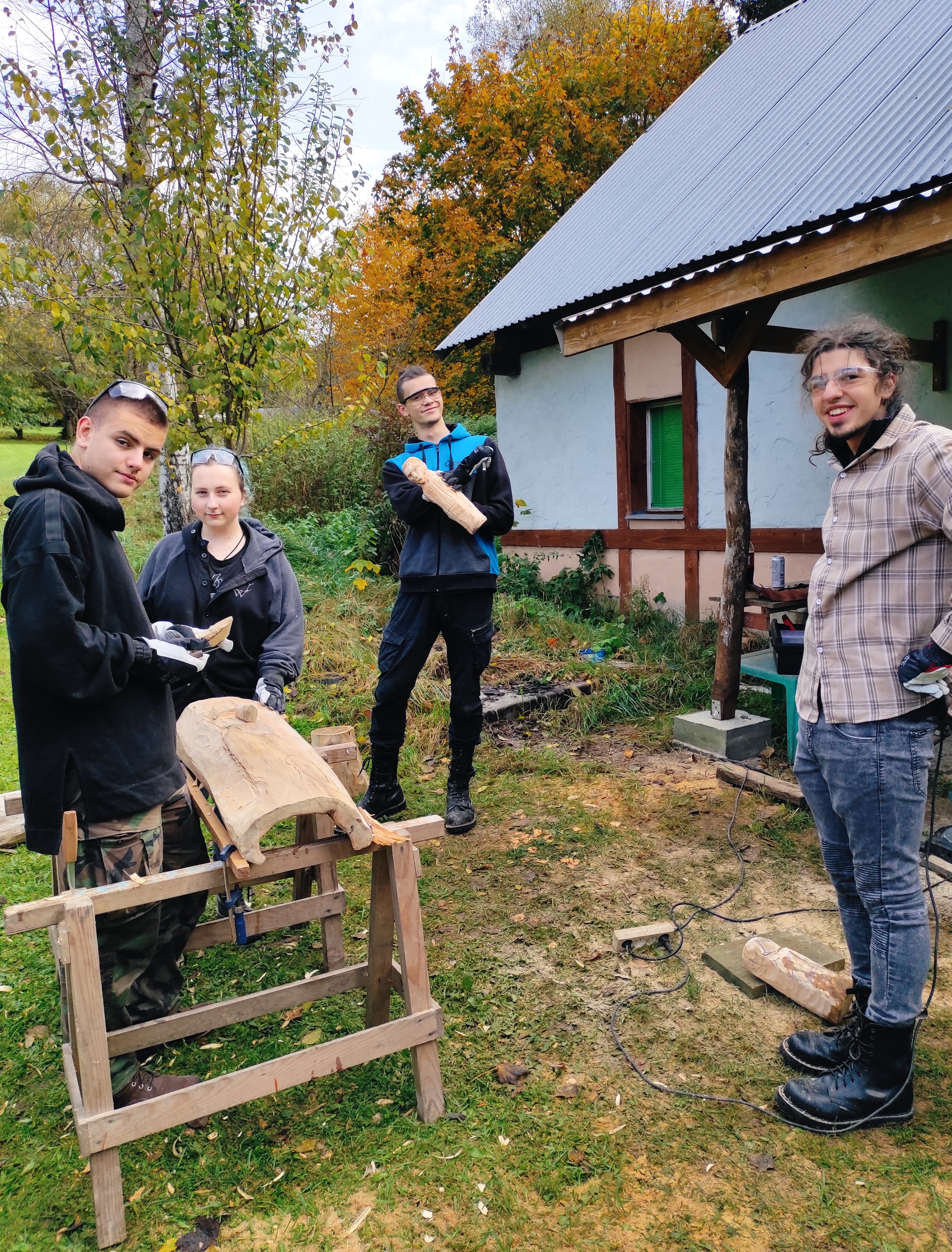
Sculptural plein-air in Rabe
On 1 September 2023, the project team began its substantive preparations by discussing the concept’s subject matter. At the team’s first meetings, the project assumptions and objectives were presented. The team received source materials related to both the theme of the project and the historical aspect. In the post-war Poland, a so-called land swap took place between the USSR and Poland in 1951. As a result, the Polish population from the area surrounding Hrubieszów and Tomaszów Lubelski was forcibly displaced in the Bieszczady Mountains.
The team consisted of 10 High School of Fine Arts students from the 3rd and 5th grade, as well as the project coordinator and leader. Having gathered the appropriate tools and materials and arranged the date of stay in Rabe, the team travelled to the project site. At the end of October 2023, the practical side of the installation was completed, as well as work safety and tool handling began. During the sculptural plein-air, the young artists were visited by the Mayor of the Commune, who invited them to visit the orthodox church and talked about the local history. The meeting continued at the project leader’s house, where the Mayor discussed and presented original documents about the post-war history and the entire forced displacement operation aimed at Polish citizens. The Mayor’s family – his grandfather, mother, and father – were all forcibly displaced. During the sculptural plein-air, a number of wood and metal elements and sculptures, as well as painted elements were created, which exceeded the formalised assumptions.
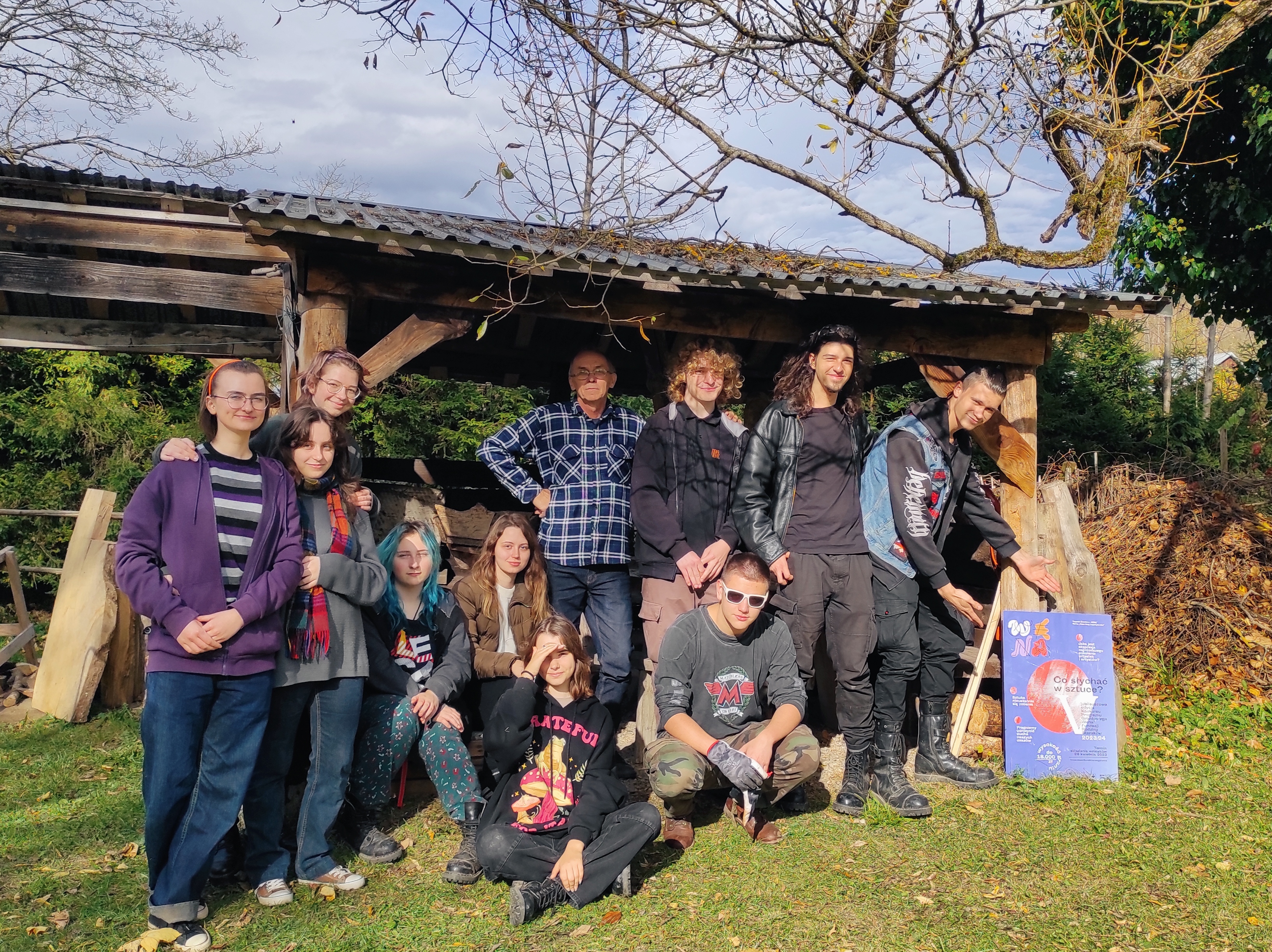
The project team during the sculptural plein-air in Rabe
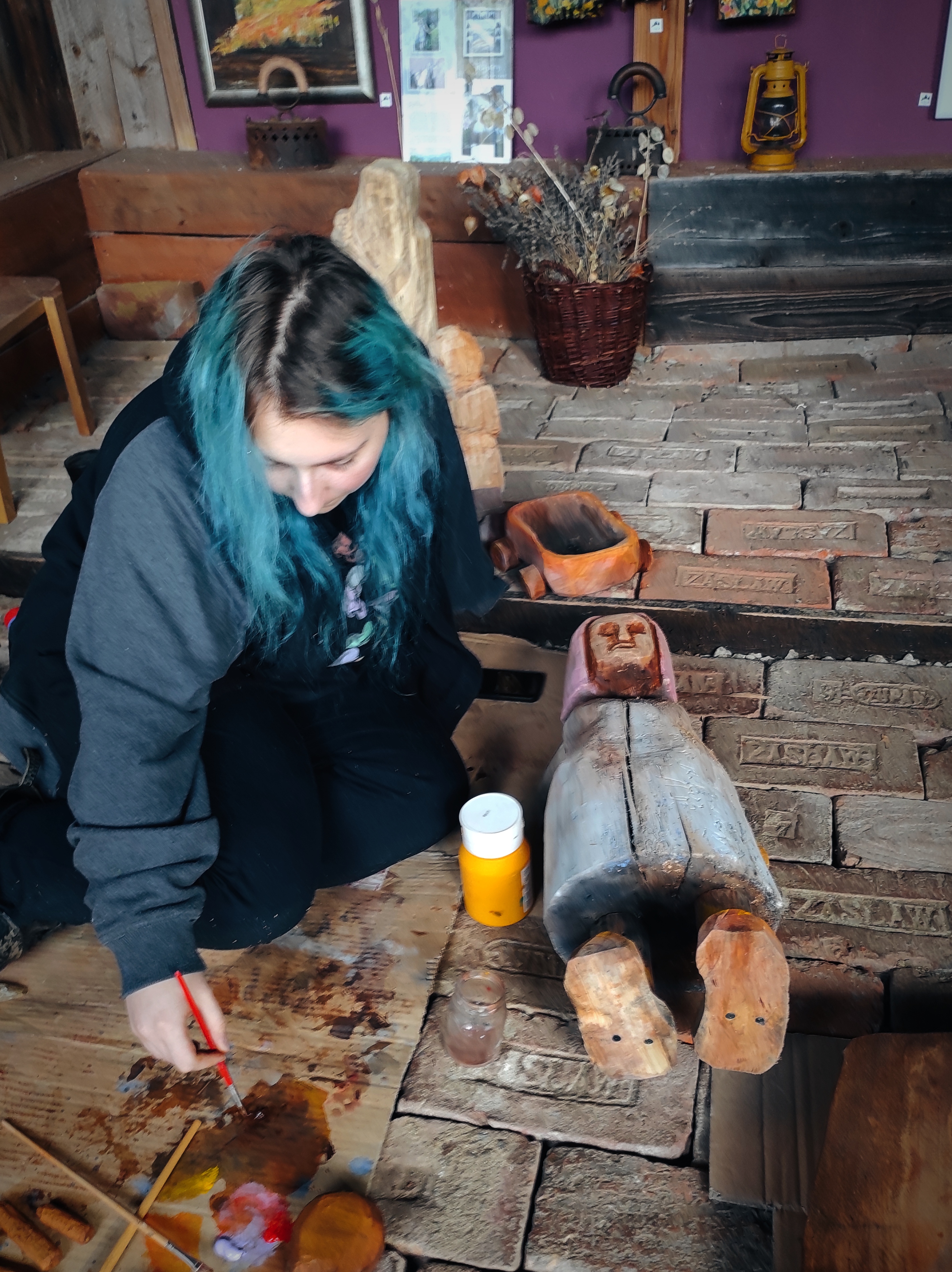
Painting workshop during the sculptural plein-air
Through participation in the projects, students learned something new. The action brought out the possibilities of artistic expression that surprised them, which proved to be a profound experience. They did not expect such results.
– recalls Waldemar Kordyaczny
The entire installation was prepared and opened at its site (car park of the historic orthodox church in Rabe).
SCHEDULE
- 1.09.23 – 15.10.23 – purchase of tools and supplies needed for the project
- 4.09.23 – 15.09.23 – discussion of the project, historical events connected with its topic, presentation of aims and assumptions of the installation
- 23.10.23 – 31.10.23 – team trip to the project site and creation of installation elements
- 24.10.23 – visit to an orthodox church, meeting with the Mayor of Czarna Commune
- 4.11. and 18.11.23 – preparation and assembly of the installation at the car park
- 24.11.23 – ceremonial opening of the sculptural installation. A ceremonial opening of the spatial and sculptural installation concluded the project. The results of the action can be seen at the car park of the historic orthodox church in Rabe. It is accessible at any time of the year. The project was formally concluded on 27.11.2023.
The project meant more to us than completing our aims and tasks. Through the project, I felt a bond with my students. I saw their wisdom, responsibility, pursuit of personal fulfilment and passion. Their maturity shined every day. I am convinced that they felt the same and tried their hardest to accomplish their mission as young artists. Our actions resulted in something lasting and, in my opinion, extraordinary. Staying in Rabe, meeting its residents and local organisations convinced both them and me that what we did will stay with us for a long time. In a tight spot, when the project was in question due to formal reasons, I received a lot of support from the Starak Family Foundation. They gave me words of encouragement, motivation, and advice on how to resolve the issues. This assistance was a sign of strong, human, and selfless assertiveness.
- stated Waldemar Kordyaczny, the attending teacher
Students also shared their feelings and experiences from the project:
Participation in the sculptural plein-air outside the school studio gave us a vast amount of experience and the opportunity to try out new techniques. At the project site, we were able to better focus on our work. In our free time, we hung out around the campfire or played board games, which helped as to bond and collaborate. While everyone was responsible for their own part of the project, we were inspiring and helping each other. Mr Waldemar Kordyaczny’s supervision helped us accomplish this mission, as he taught us how to use the tools and made sure we were safe. He led us through preparing such a large composition step by step, from finding the supplies to securing the finished sculpture.
The project energised us and showed us new avenues for future works. Mr Waldemar Kordyaczny arranged for us to meet the Mayor, who gave us a detailed account of the history we wanted to express in our sculptures. When the Mayor showed us old documents and photos, we grew even more interested, as we could see a part of the local history. Thanks to the project, we were able to try new things and find our path, get to know each other better, and learn to work diligently. We want to thank Mr Waldemar Kordyaczny for choosing us and giving us this opportunity. We are grateful to the Starak Family Foundation for the opportunity to participate in this project. The project received a lot of publicity in media outlets, such as: the Czarna Commune’s website, wbieszczady.pl, Czarna and Neighbouring Areas fanpage, High School of Fine Arts in Lesko, Technical and Art Schools Complex in Lesko, and in private forums. This spatial and sculptural installation will continue to exist for a long time and will be visited by tourists in the Bieszczady Mountains. It will be looked after by the Rabe community.
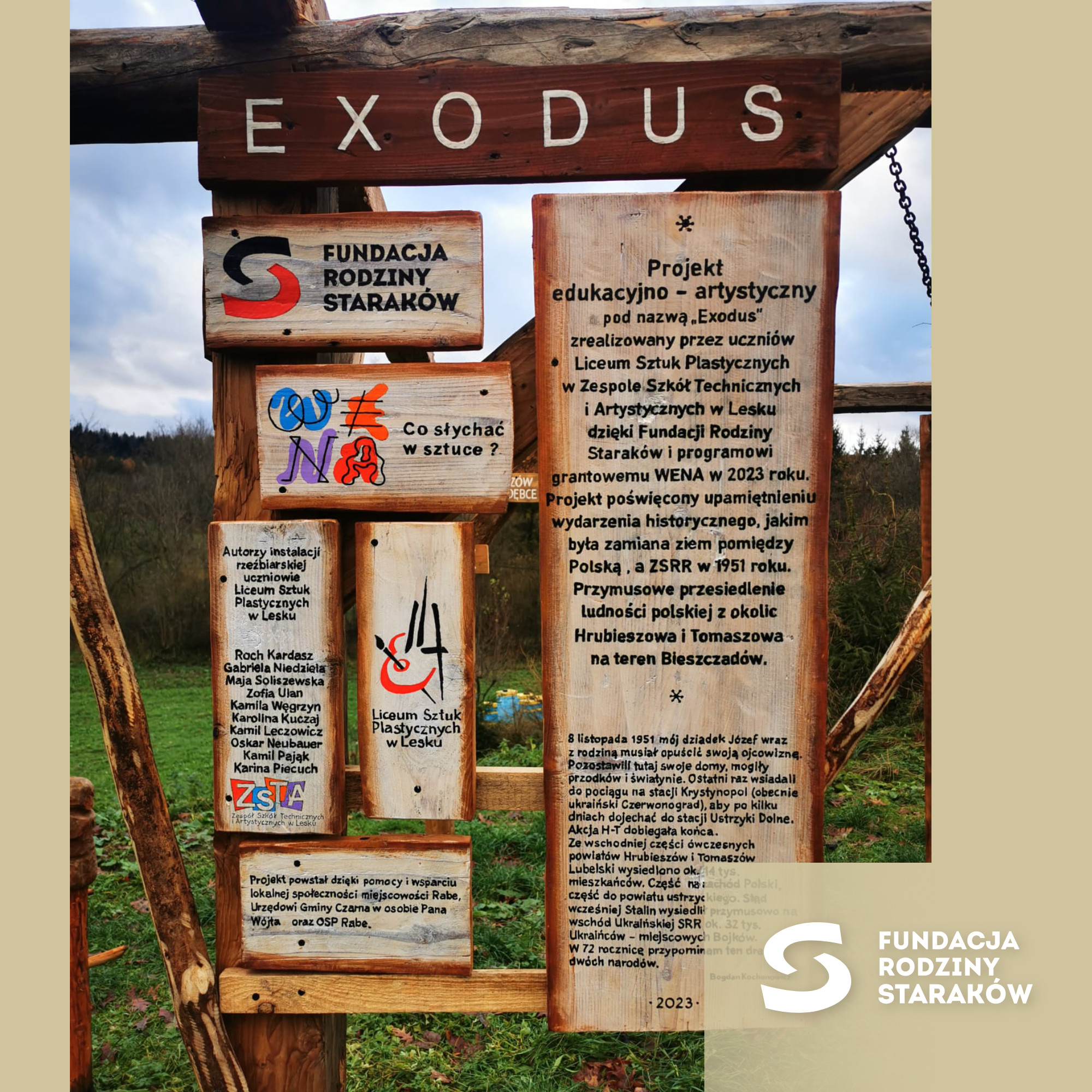
Wooden information board
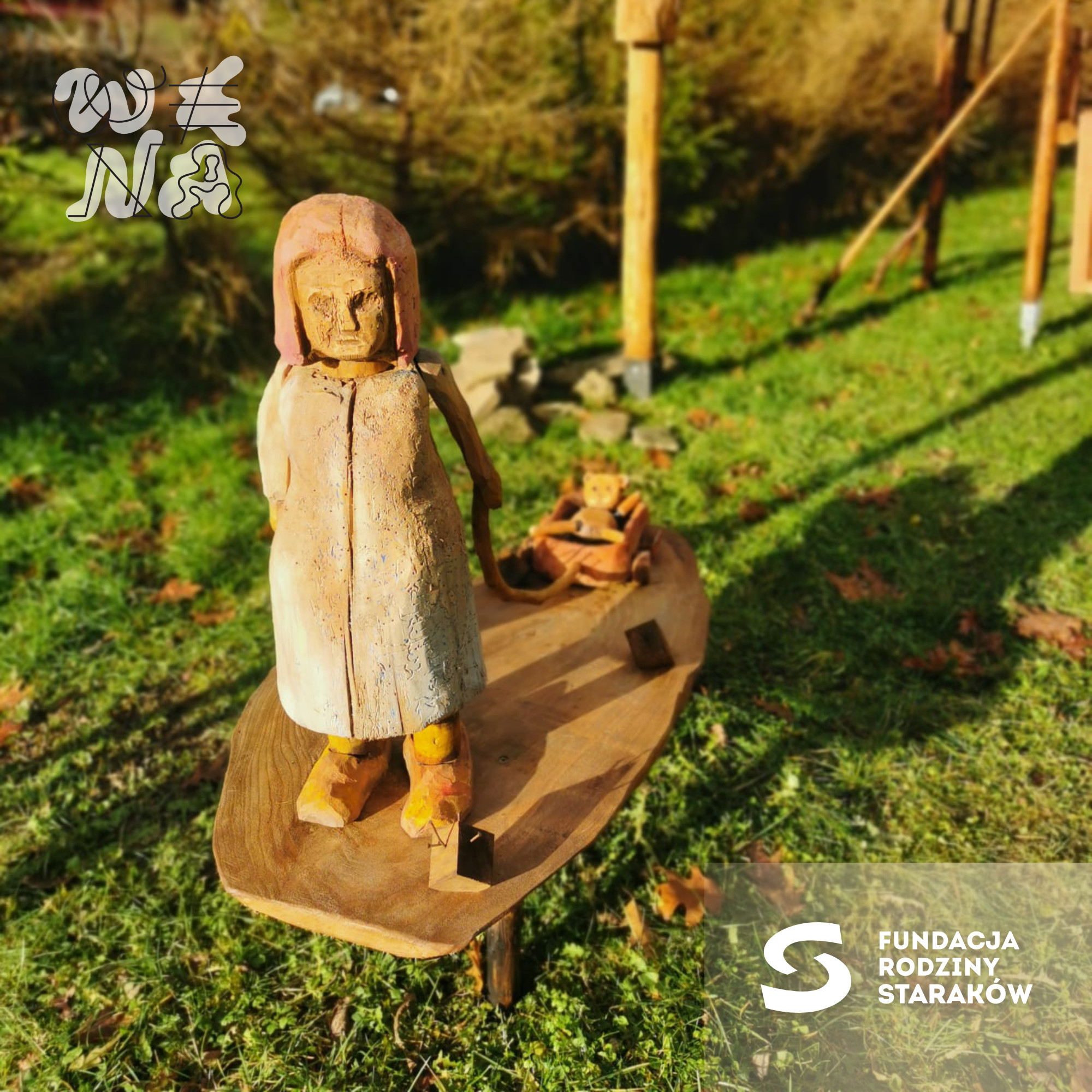
Sculptural details
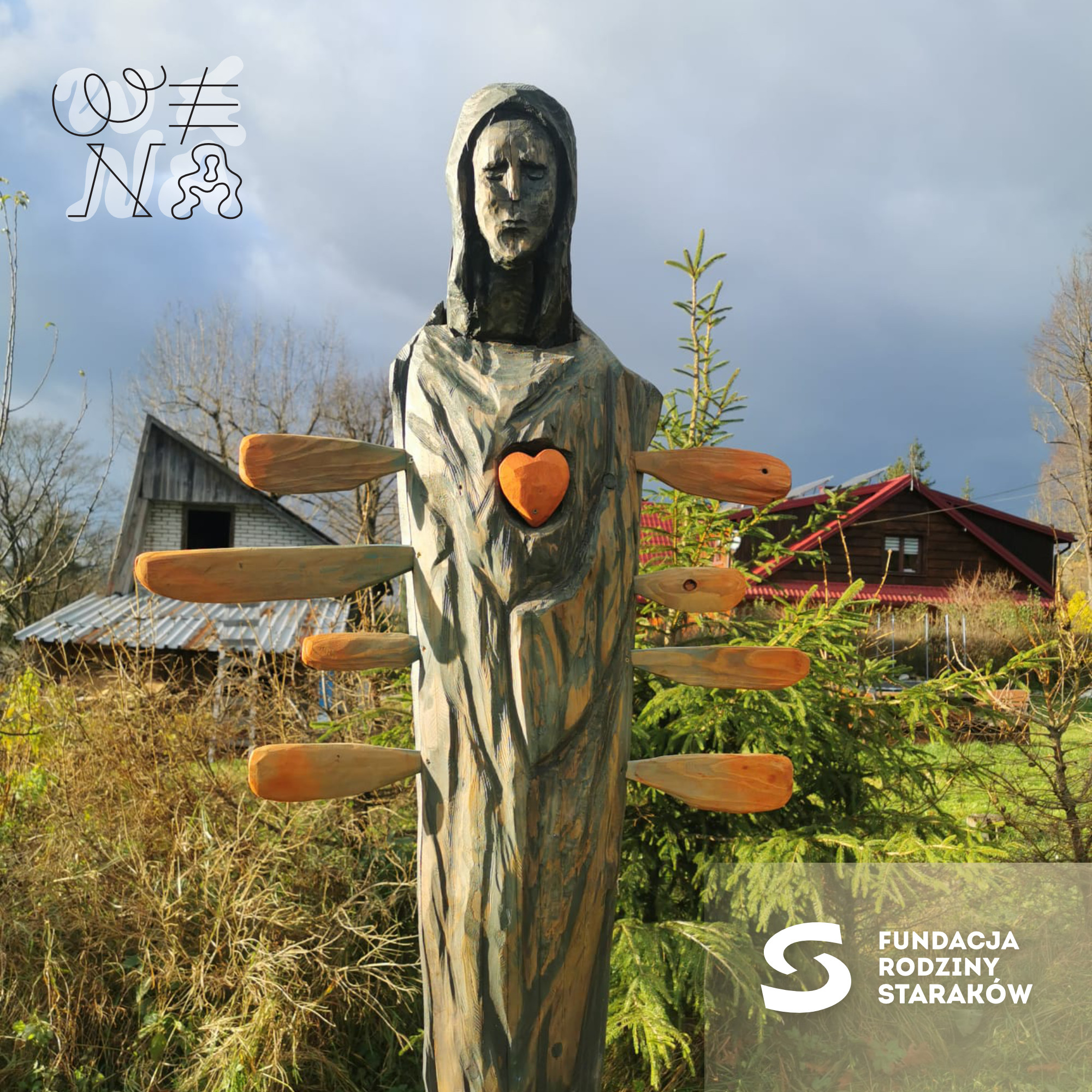
Sculptural details
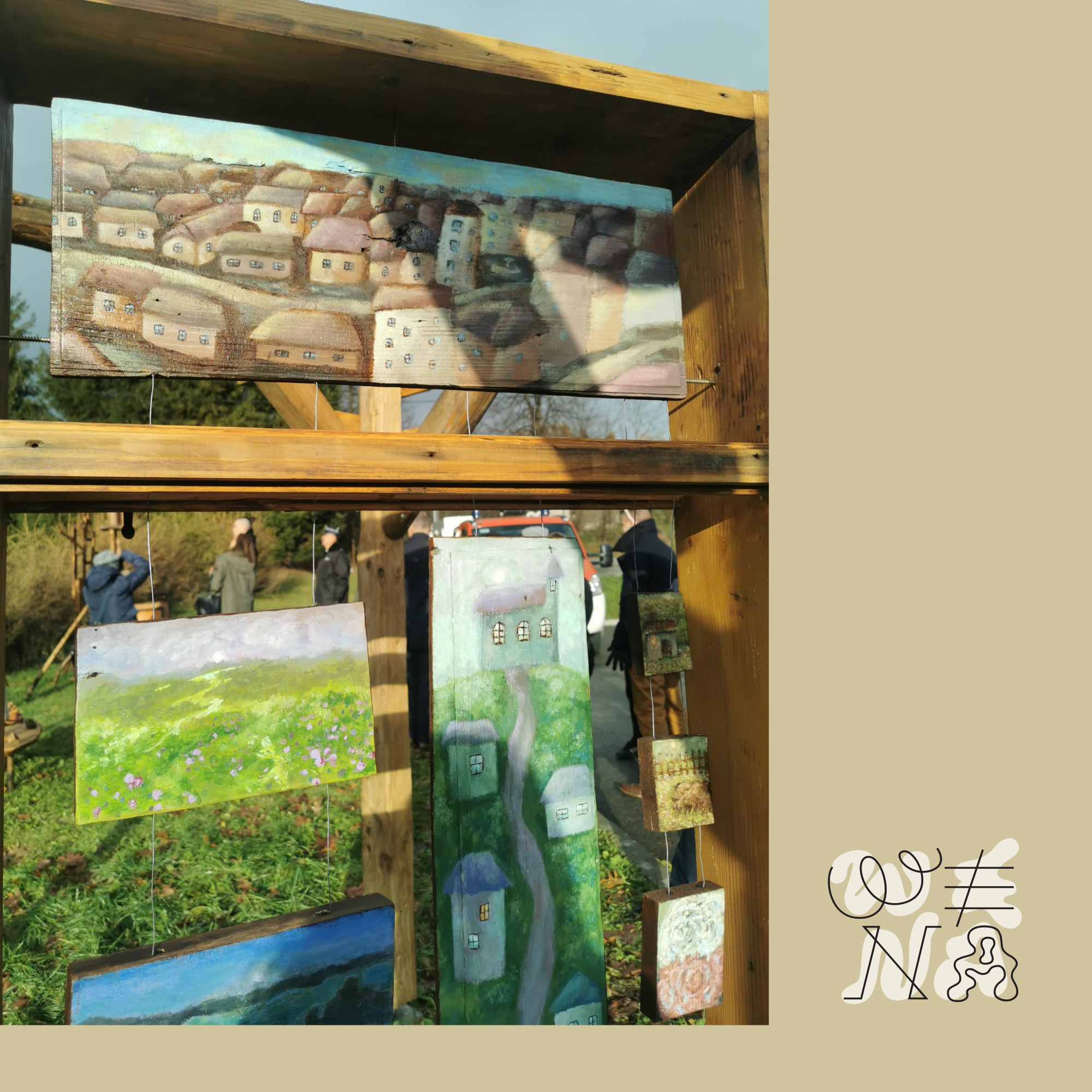
Sculptural details
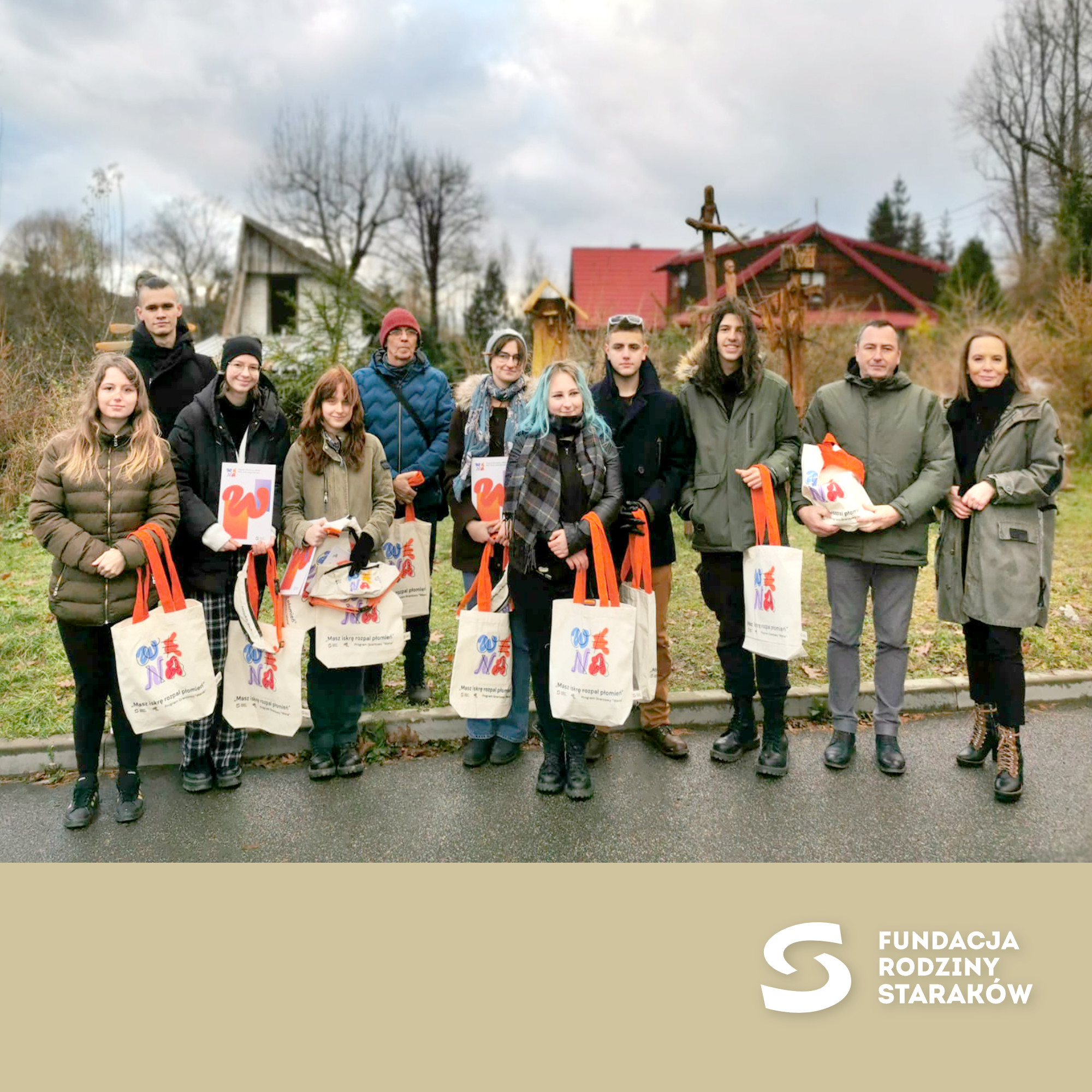
The young people of Lesko's visual arts school set an example of socially engaged art, complementing with images, the historical events of the exchange of land between Poland and the USSR in 1951. Through their art, the young artists eloquently portrayed the dramas of the local people at that time. We saw nails hammered into figures carved in wood, women's hearts stripped bare and their hands helplessly spread out, sad little children taking their only toy with them into the unknown.
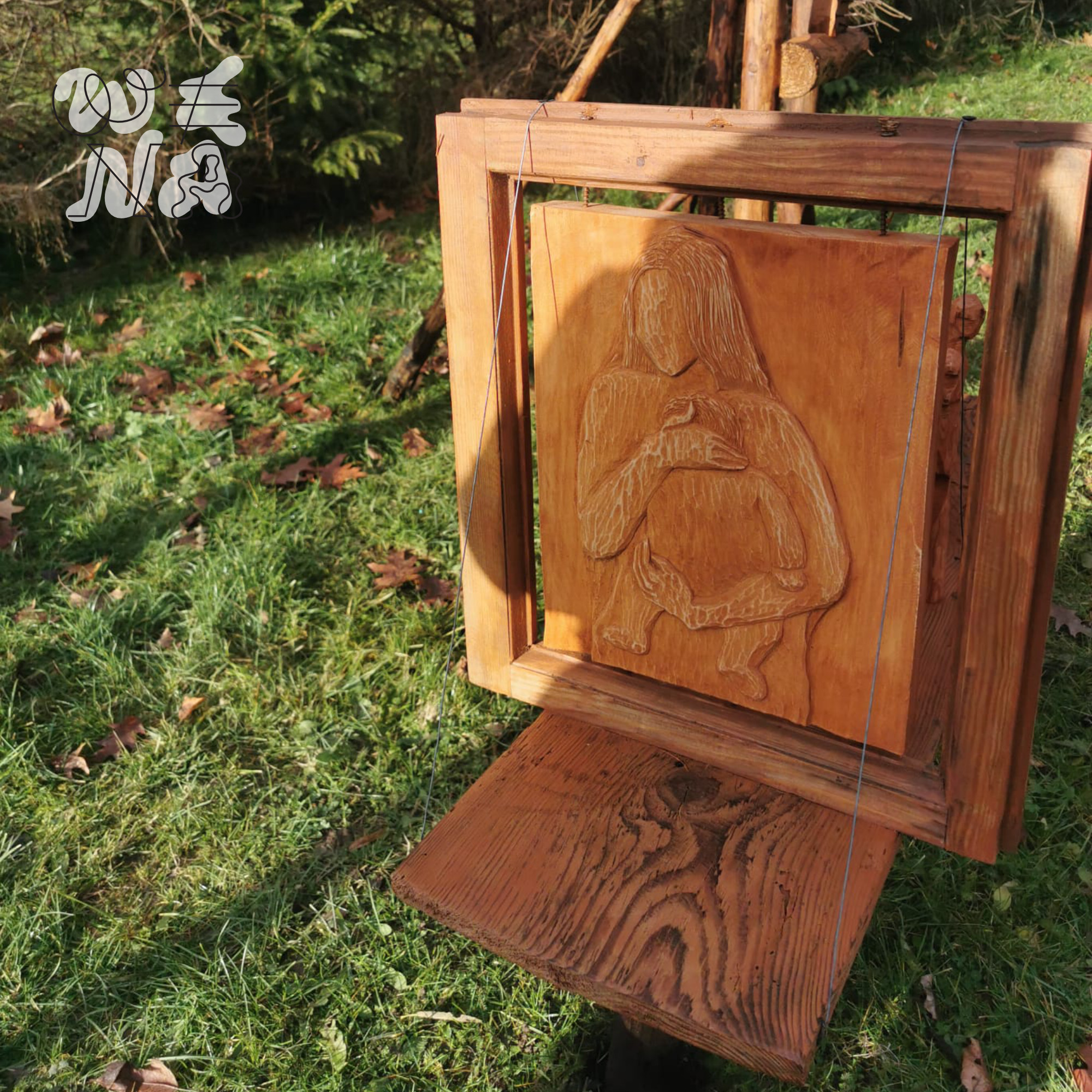
Detail of the sculptural and spatial installation 'Exodus', on display at Rabem
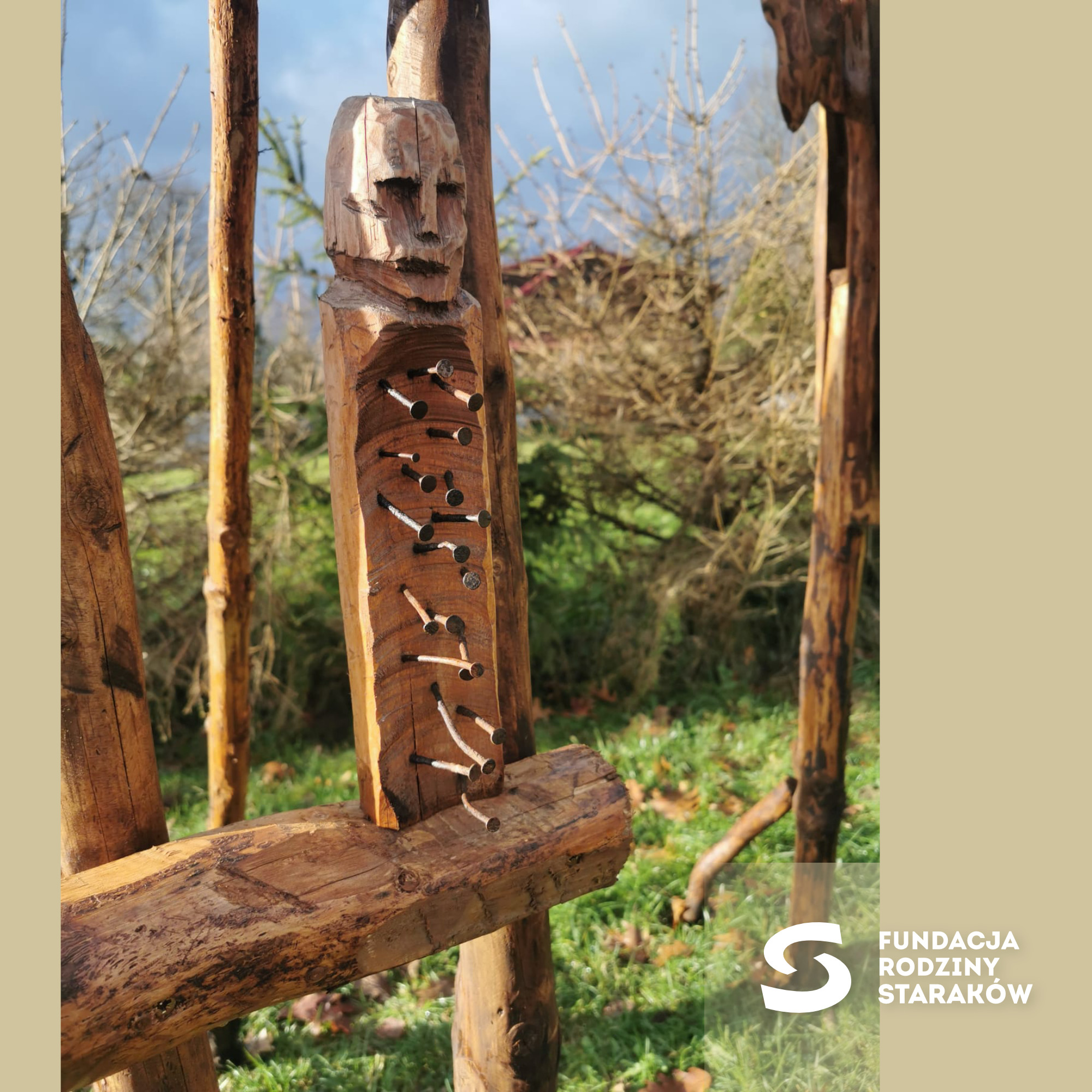
Detail of the sculptural and spatial installation 'Exodus', on display at Rabem.
By seeking to convey poignant emotions through sculpture, the students have made perhaps the most appropriate means of artistic expression, leaving a lasting message for present and future generations.
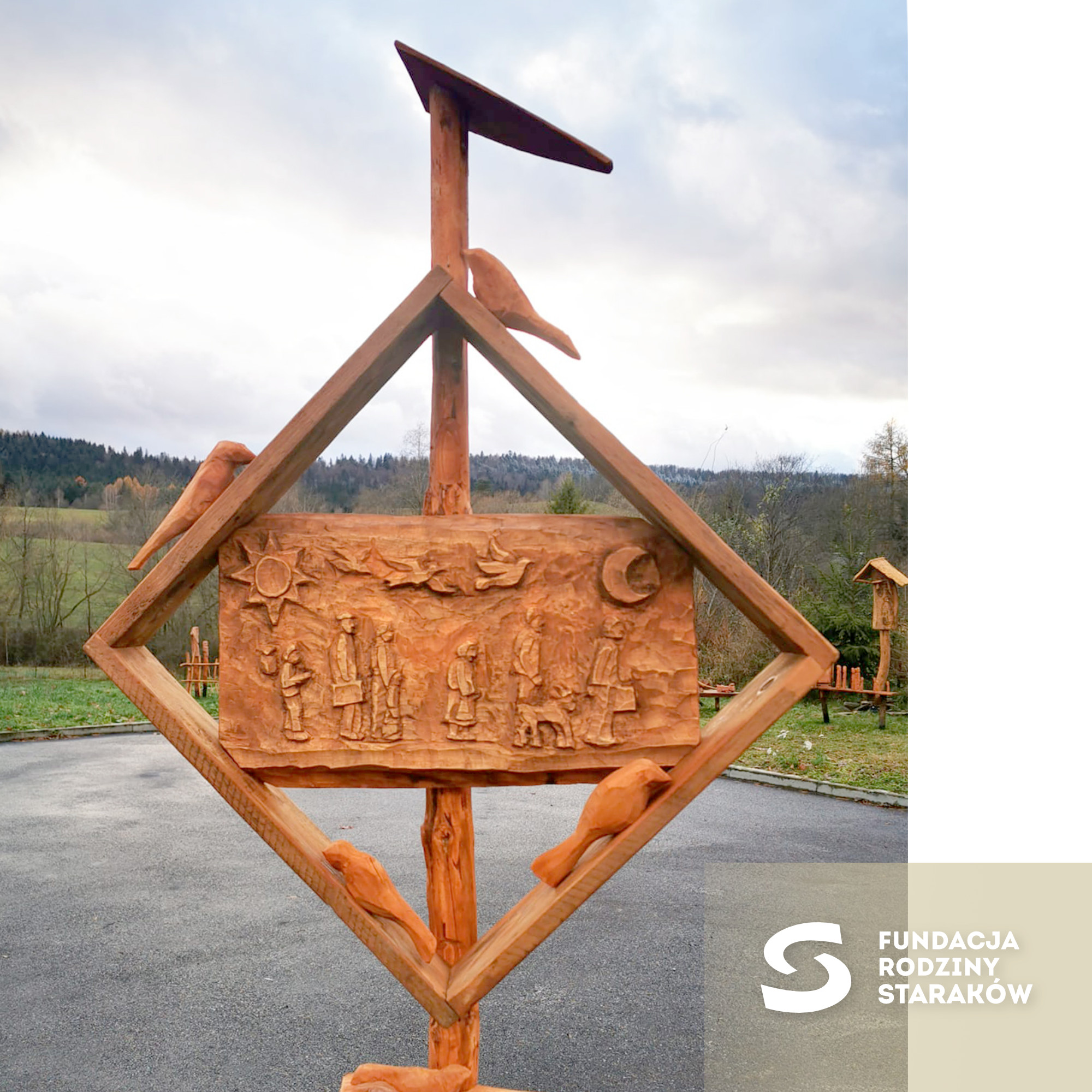
Detail of the sculptural and spatial installation 'Exodus', on display at Rabe
We would like to emphasise that, within the framework of the educational and artistic projects already implemented for five years and awarded in the 'Weny' Competitions, 'Exodus' is the first to respond to the competition slogan, from start to finish through sculpture in wood, stone and metal. Our conversations with the young people were endless. The students shared with us the emotions accompanying them throughout the project and expressed their great satisfaction, emphasising the educational value and the experience of testing themselves and their own abilities in activities beyond the school studio. By taking creative action, beyond the core curriculum, they tackled the telling and understanding of a difficult story, reaching out to audiences no longer as pupils but as young sculptors and young sculptresses.
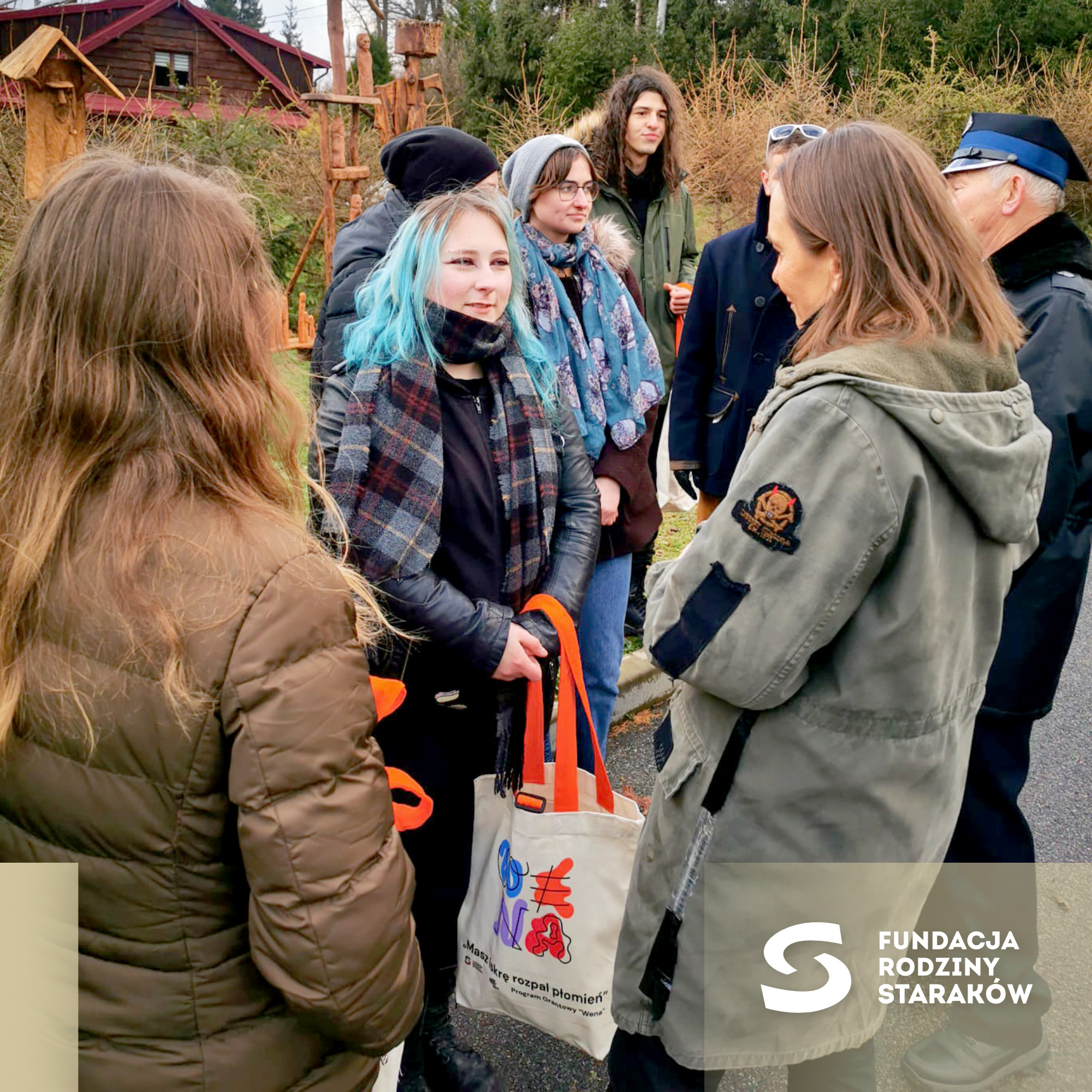
Opening in Rabe
The students were guided throughout the project by a wonderful educator and artist - Waldemar Kordyaczny - a champion for his students, in whom he enjoys great affection and respect.
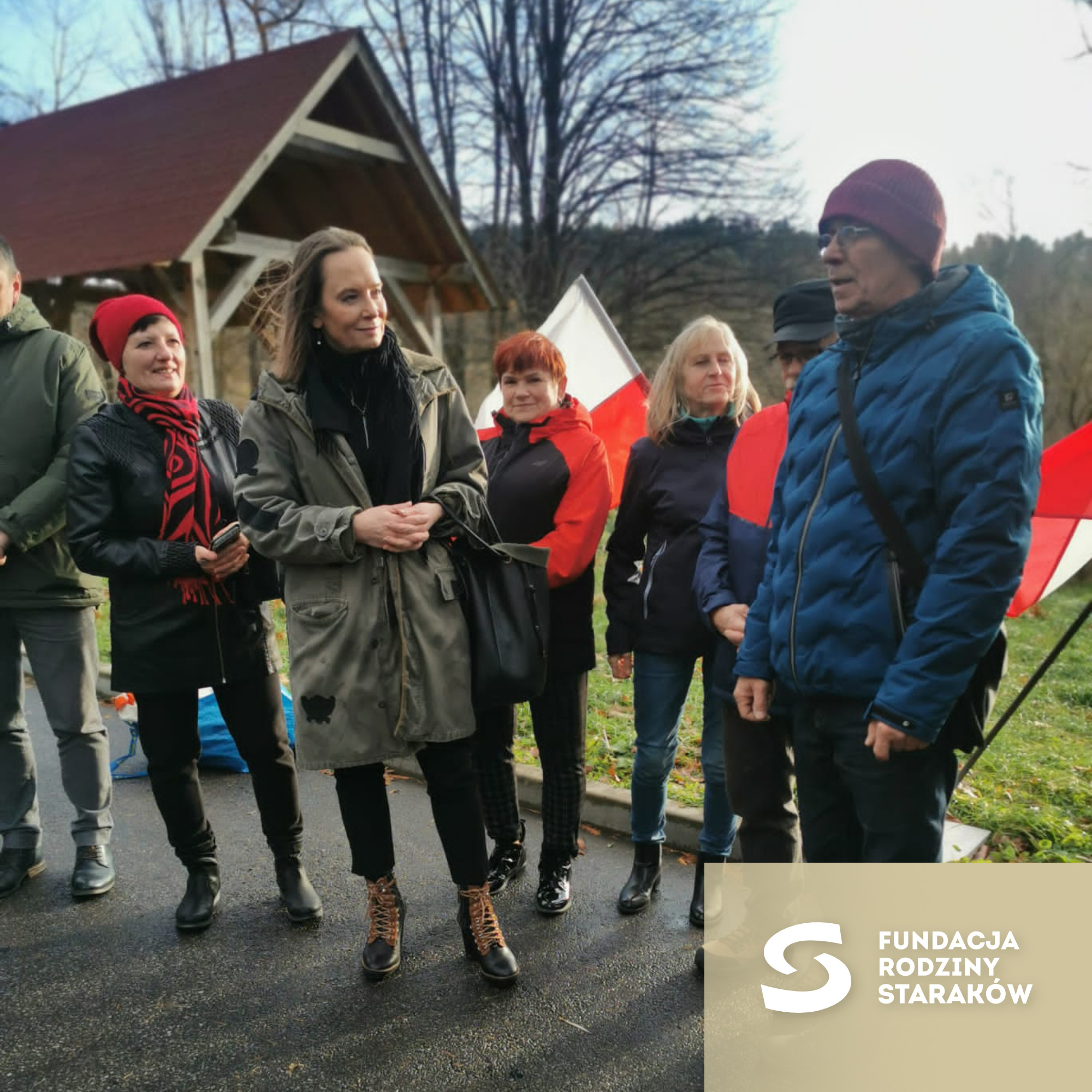
Waldemar Kordyaczny, educator and artist, teacher leader of the 'Exodus' project
Waldemar Kordyaczny, as the originator of the "Exodus" concept, submitted the project to the Competition for the first time on behalf of the Lesko art school. Thanks to Waldemar Kordyaczny, excellent relations and cooperation have been built between the only state art school in the Bieszczady Mountains and: the inhabitants, local government, Rabe TSO, entrepreneurs, foresters. We would like to thank the mayor of Czarna municipality Bogusław Kochanowicz for receiving us very warmly at the cultural centre in Czarna, for his personal interest, support and understanding of the needs for cultural development, playing a huge role in commemorating the history of the place. To the firefighters, we thank them for telling us stories related to Rabe, their commitment during the project and their expression of local patriotism in the form of caring for the 'Exodus' installation that was created.
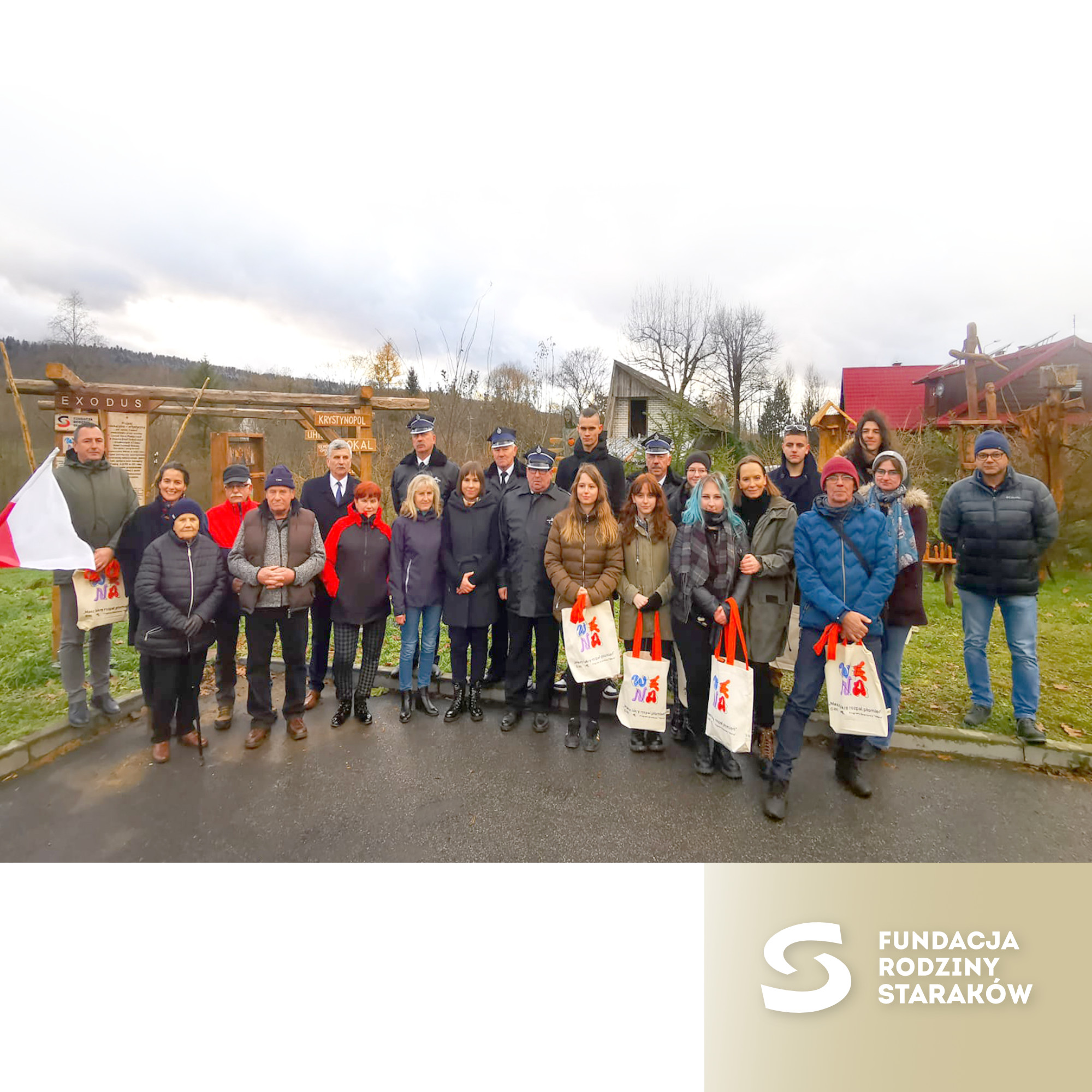
Participants at the opening in Rabe
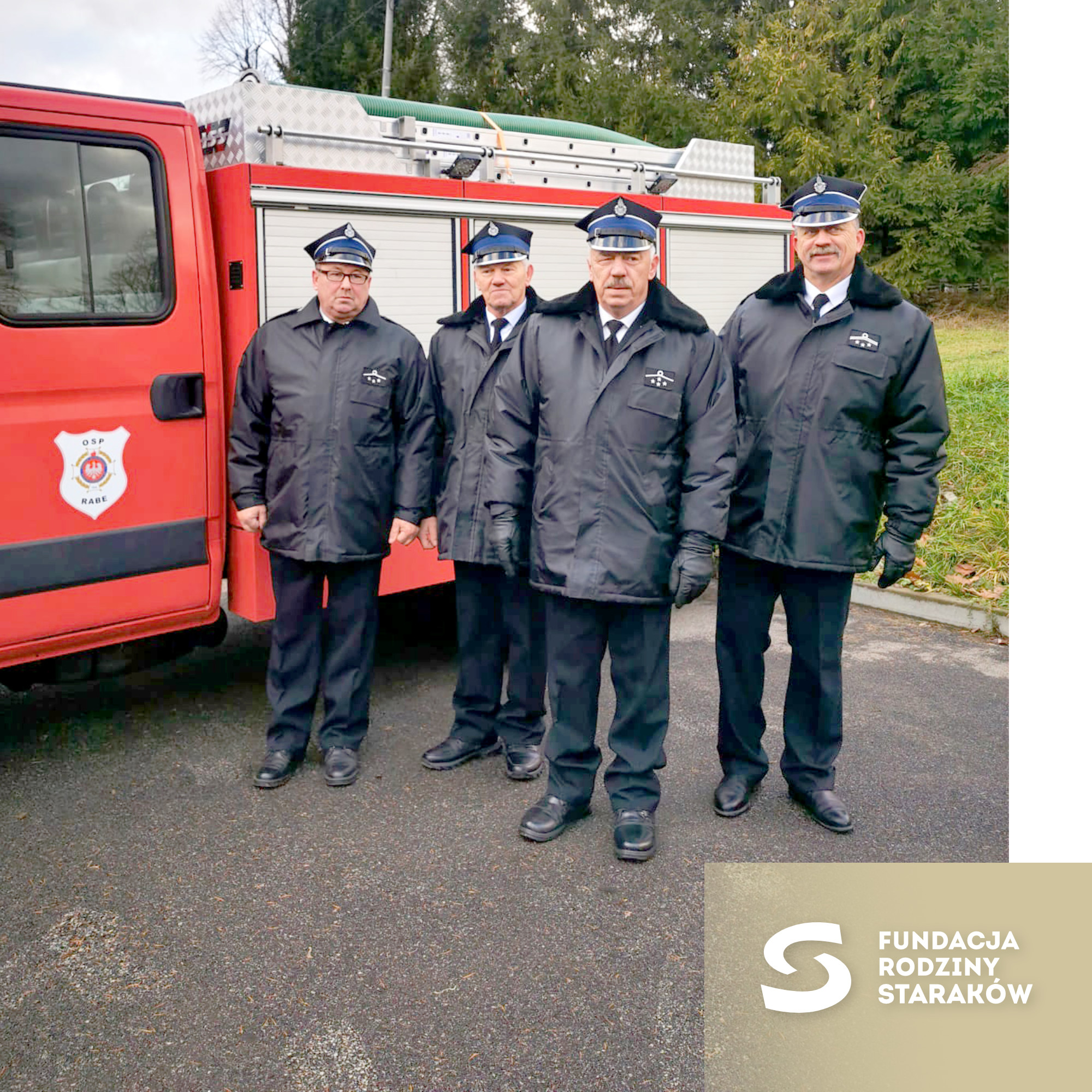
Rabe TSO team members
Congratulations and thank you for this wonderful message. We are proud that the "Wena" Grant Programme is producing such spectacular results for the development of young people linking their future to the arts and is having such a wide social impact.
Report on the summary of the project and the public presentation of the “Exodus” installation in Rabe:
https://starakfoundation.org/pl/spectraedu/news/_exodus_ekspozycja_rzezbiarsko_przestrzenna_w_rabem
SUSTAINABILITY OF THE PROJECT
The project will continue through further development of the installation. New elements will be added to enrich the installation. In spring 2024, it is planned to install history boards that aim to depict and inform the visitors about the 1951 displacement. Additionally, there will be elements of planting flowers.
ATTENDING TEACHER
WALDEMAR KORDYACZNY - art teacher, born in 1959 in Rzeszów. He studied at the Academy of Fine Arts in Cracow at the Faculty of Graphic Arts, Katowice Branch. He obtained his diploma in 1987. He has presented four individual exhibitions and participated in all the exhibitions presented by the “Na Drabinie” Art Group, as well as subsequent editions of the “Painting, Graphic, Drawing, Sculpture of the Year” in the years 1990-2009 in Rzeszów, where he was awarded the 3rd Prize (1996) and a Distinction (1997). He paints, draws, and creates graphics. He lives and works in Lesko.
